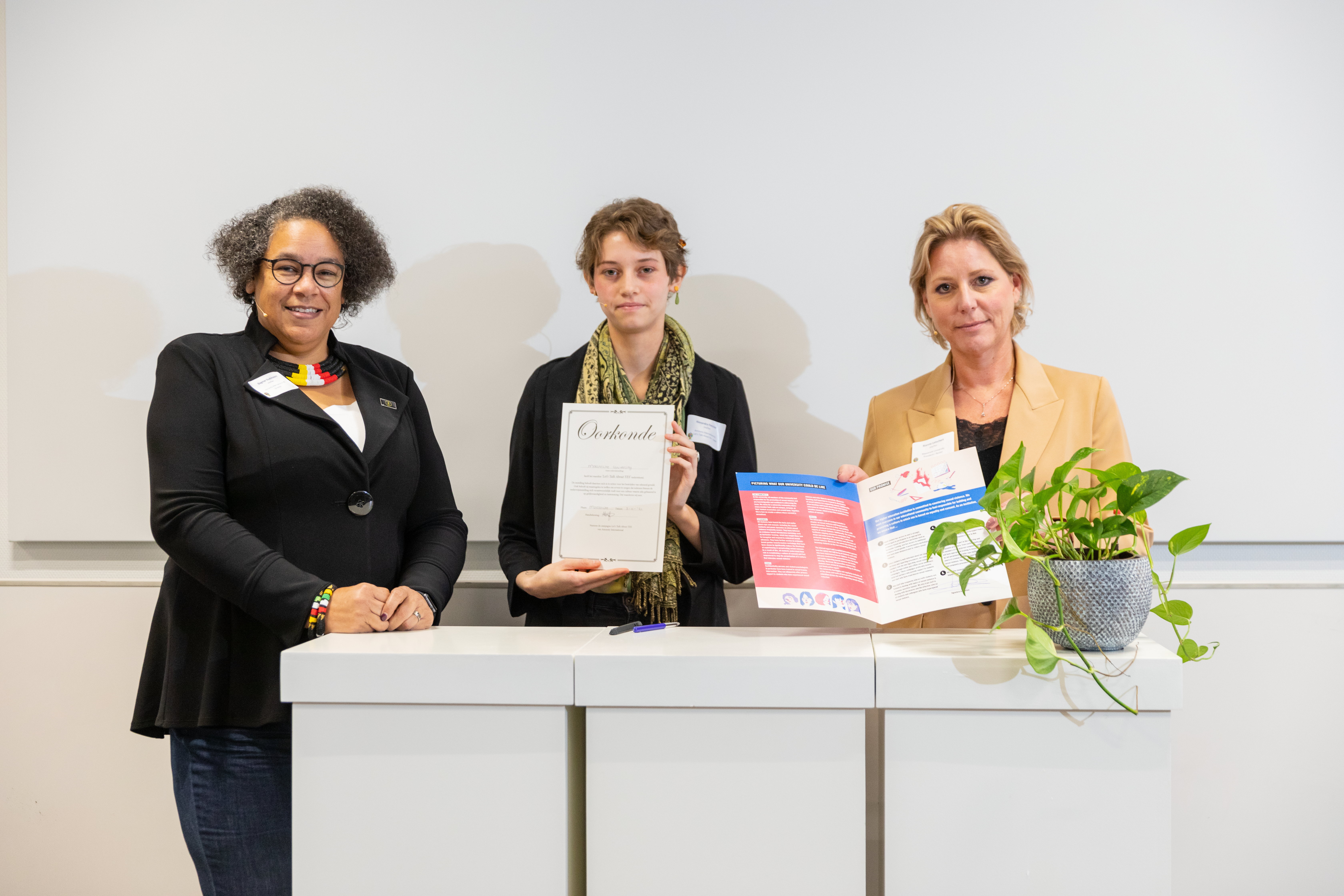UM signs Amnesty manifesto ‘Let's talk about Yes’
On 3 November, Maastricht University (UM) signed Amnesty International's manifesto ‘Let's talk about Yes’. With this, UM will intensify its activities against sexual violence. In doing so, UM will explicitly seek out cooperation with parties that have their own expertise, responsibilities and mandate in this area, such as the Municipal Health Services (GGD)/Sexual Assault Center (CSG), the police and the municipality.
UM itself will also take additional actions along the lines of the Amnesty manifesto:
- All students must be able to follow workshops that have been shown to reduce sexual violence, such as bystander training.
- Provide clear and continuous communication about help and reporting facilities, and about our own and the legal codes (of conduct).
- Train staff members who are in contact with students, so they know how to deal with signals or reports of sexual violence.
- Fine-tune the reporting and complaints procedure so that it is crystal clear and detailed/comprehensive.
- Implement specific training for staff members who play a role in the reporting and complaints procedure.
- UM will involve students in the implementation of the above actions.
Research confirms the need for action
The manifesto is a response to research commissioned by Amnesty into sexual violence among students. This research shows that many students experience sexual violence. Research conducted by UM among its own student population confirms these findings.
Last summer, Amnesty International presented the results of research on sexual violence among Dutch students. During their time as a student, 11% of female students and 1% of male students reported experiencing penetration without consent. Of these students, 67% indicated having psychological, sexual, physical or social problems as a result. In addition, a majority of students indicated that they do not know where they can find information or help within their educational institution if sexual violence occurs.
Last year, UM conducted research among its own students regarding sexual violence. The surveys were set up differently and, unlike the Amnesty survey, the UM survey asked students the questions in English. The UM study was also more extensive; several forms of sexual violence were included in the study and sexual harassment was also looked at.
With these differences in mind, the researchers conclude that their survey among UM students still broadly supports the results of the Amnesty study. Of the UM students who were surveyed, 9.8% indicated that they had experienced sexual violence (in the form of penetration without consent). More than half of these students knew the perpetrator from within UM. This is not surprising for the researchers; other studies on sexual violence have shown that perpetrators are often acquaintances of their victims.
Almost three quarters of the group that experienced some form of sexual violence indicated that they also experienced negative consequences as a result. And although many UM students know of one or more 'UM help desks' where they can go, they often lack the overview to make a specific report or to get help. These results are also comparable to the results of the Amnesty survey. And they are more than enough reason to provide additional clarity to students about how the university can also offer help, together with other providers of medical, psychological and legal support.
